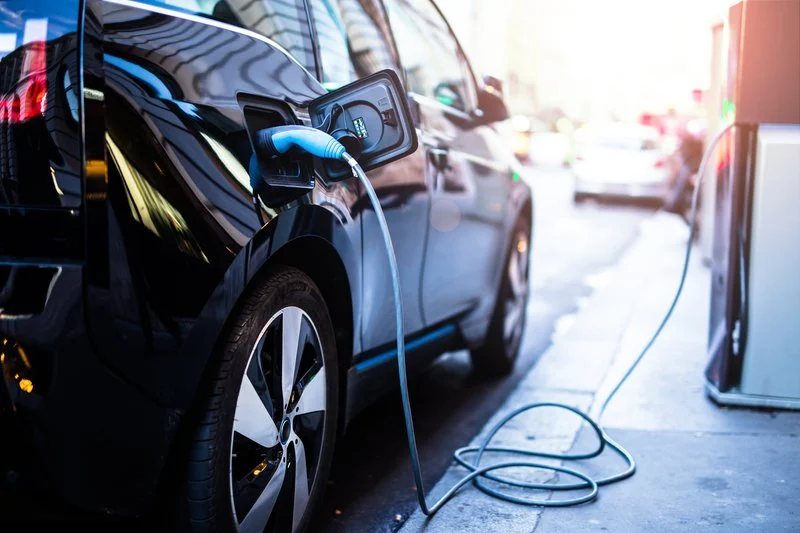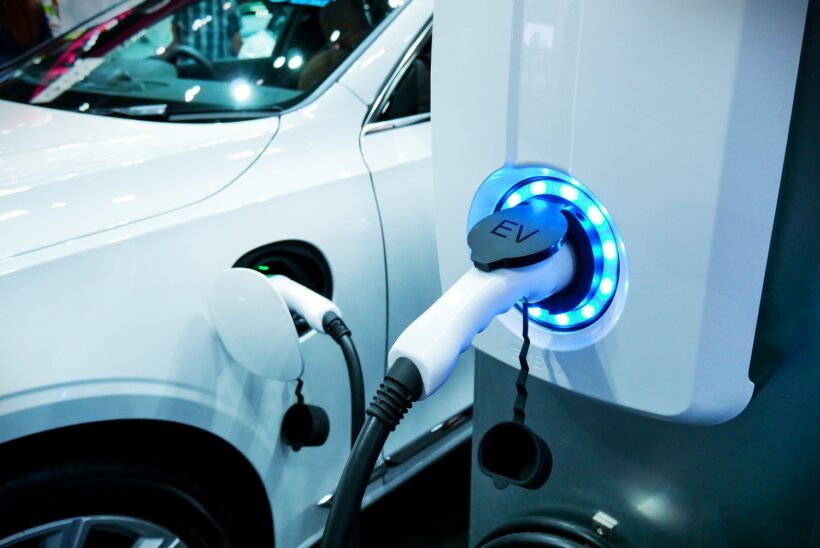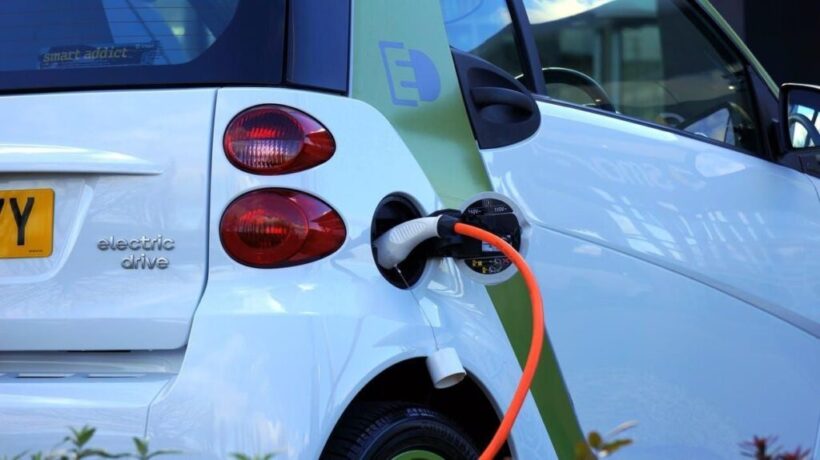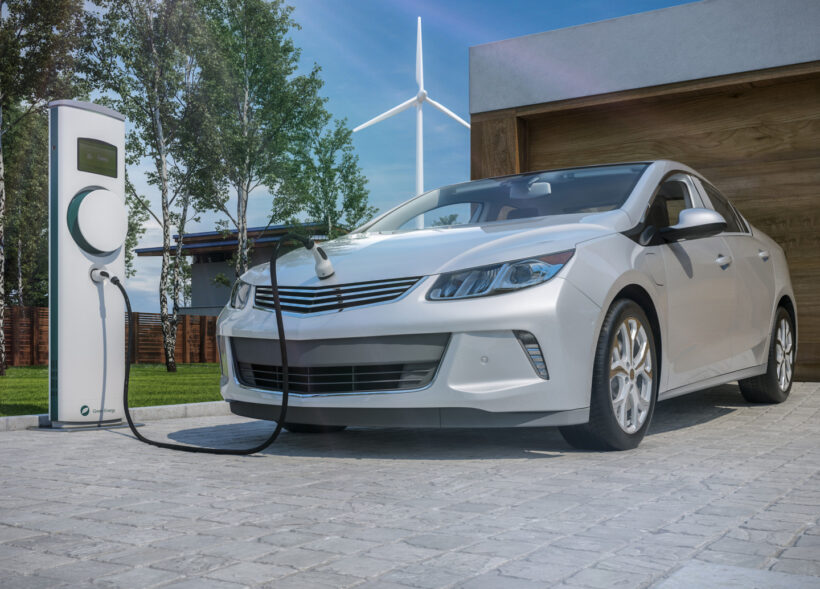Sales of electric and hybrid vehicles are slowly increasing, as price points come down and the accessibility of charging points increases. In fact, nearly 25% of new car registrations are now electric vehicles, and there’s a growing market for second hand cars too. The Teslas and BMWs might make the headlines, but the majority of these electric vehicles are small, reasonably priced, family cars used for everyday trips. Electric vehicles fall into two main categories: BEVs (battery electric vehicles) and PHEVs (plug-in hybrid electric vehicles), the latter of which have both petrol engines and electric batteries.
There are a few different reasons why people switch to electric vehicles. They produce fewer emissions while driving (none for BEVs) and are subject to cheaper road taxes and refuelling costs. Many owners also enjoy the additional technology included, especially in the higher end vehicles. But if you’re thinking an EV is exactly the same as a traditional vehicle, just a bit quieter and less gassy, there are a few things that you should know.
What Stays The Same?

Many of the non-driving functions of your car will be the same in an EV. Stereo, air conditioning, adjustable seats, etc don’t need to change. There might be batteries instead of an engine, but this has very little impact on the design features in the interior of the car, and it certainly won’t impact on your legroom.
You might think that the tires you need won’t change either, but batteries are heavier than a traditional petrol engine – and remember that PHEVs carry both – so you need to make sure that you are using a tire size that will support the extra weight. Use a reliable tire retailer such as TireAgent to replace your tires like-for-like to get the best performance from your vehicle.
A Different Driving Experience
The first thing you’ll notice is missing from your EV is the gearbox. Electric cars don’t need to shift when accelerating or decelerating so the stick and clutch pedal are redundant. If you’ve never driven an automatic vehicle before it can take you a few journeys to get used to, but this ultimately means that there is one less thing to need maintaining.
Range Issues
One of the most commonly cited drawbacks to electric vehicles is their issues over long-range. But unless you’re planning on crossing the country on a weekly basis, most EVs can comfortably cope with the range of daily driving between home, work, school etc. However, if you do have to make regular trips of more than 200 miles, you’d better get used to planning stages around charging points and taking longer breaks because refuelling an EV isn’t as quick as pouring in a tank of petrol.
Charging
Most EVs will charge off a regular home socket, but the low voltage means that it will take all night. Many workplaces, especially those that offer an EV car scheme, will have charging points to use during the day, and you can also find them at many stores and leisure complexes across the country. Charging away from home will be faster, but it will cost you almost double. Getting a charging point fitted to your home is the most effective way of charging your EV and they aren’t too expensive to install.
Why Should You Shift To Electric Vehicle?
Environment Friendly
For many drivers, the fact that electric vehicles are more environmentally friendly is sufficient justification for making the purchase. EVs have zero emissions because they don’t even have an exhaust system. Additionally, switching to an electric car can help promote healthier air and a cleaner environment because gas-powered cars contribute significantly to the buildup of greenhouse gases in the earth’s atmosphere.
Decreased Reliance On Oil
The use of electric vehicles lowers the quantity of oil that a country imports to meet its energy needs. This is a problem since, as most countries import their oil because the domestic supply is insufficient. It translates into reliance on other countries and the energy costs they set. However, since the nation’s electricity powers electric cars, the nation continues to be independent.
Less Noise
There are no obtrusive combustion engines in electric cars. Driving becomes incredibly quiet as a result of this. Given that the majority of car owners commute within cities, vehicle noise has ingrained itself into their daily lives and occasionally becomes more of an irritation. However, the silence of the electric vehicle works to eliminate this, creating a calm environment for both the driver and the environment.
Great Performance
Simply put, driving an electric automobile is enjoyable thanks to its rapid acceleration and impressive performance. Electric motors, in contrast to gasoline-powered vehicles, create their peak torque right away, without the buildup that gasoline engines need to attain their full power. The handling of electric vehicles is excellent. Most electric cars have the battery pack in the middle, which lowers the centre of gravity of the car and improves weight distribution, stability, and cornering while reducing the chance of a rollover.
Low Maintenance
Because electric motors and batteries need less regular maintenance than gasoline engines do, electric cars also often have reduced maintenance costs. For instance, they don’t require routine oil changes. Of course, both gasoline-powered cars and electric vehicles still need to be insured, have their tires changed, and have their brakes maintained on a regular basis.
Is It Time To Make The Switch To Electric Cars?
We make little effort to promote electric cars and alternative energy sources despite our worry over the state of the environment. When traditional petrol and diesel engines are replaced by electric motors, the environment benefits greatly.
Many manufacturers have concentrated on producing electric-powered vehicles as a result of increased awareness campaigns about global warming and the environmental harm caused by conventional automobiles.
In order to make the switch to EVs accessible, opulent, and comfortable for every regular buyer, leading electric vehicle firms are working on the price factor of the next vehicles extremely effectively and providing customers with a variety of purchase options. Frameless Generator have great potential in the EV sector, contributing to improved space efficiency and power generation in hybrid or electric propulsion
systems.
Batteries may become less expensive and have a greater operating range with new and improved technology. Therefore, now is the ideal time to move to an electric car because everybody may use the option to charge one every evening at home, so charging times are not a concern. With this significant shift in your life, you may minimize air pollution, foster a healthy atmosphere for your family, and improve your community.
In Conclusion

Switching to an EV isn’t as scary as it might sound. They might be a little more expensive to purchase, but this is offset by the lower running costs. It’s worth doing your research to find out where charging points are available in your local area, just as you would look for gas stations. You can start driving an EV without paying for a home charging point, but it’s probably worth looking into having one fitted in the long run, for the convenience as well as the reduced charging costs.


